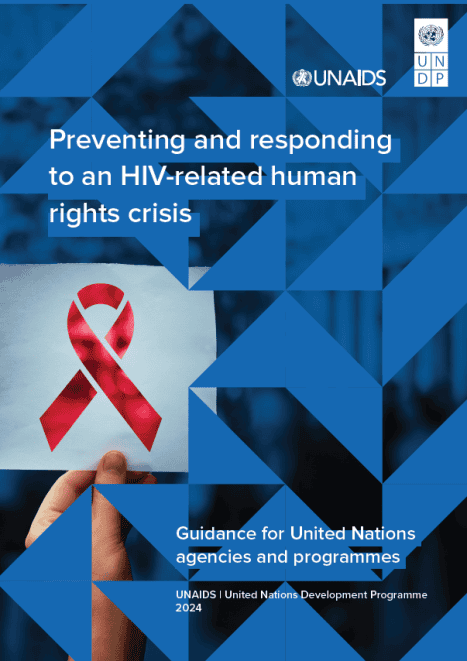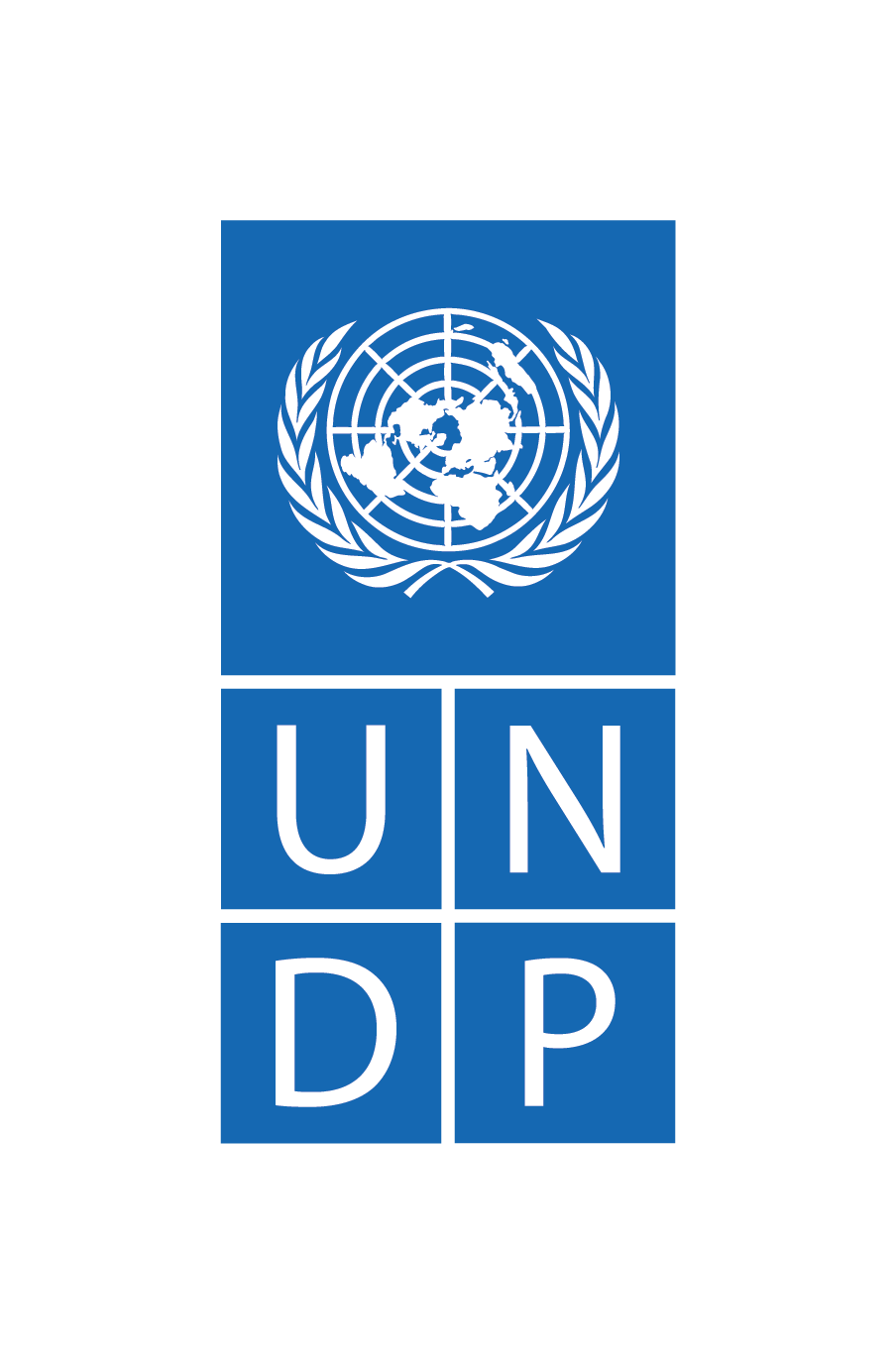Removing human rights barriers to health
Overview
Human rights barriers include stigma and discrimination, punitive laws, policies and practices, violence, harassment, gender, and social and economic inequalities. Human right barriers negatively affect health outcomes and impede national and local responses to HIV, tuberculosis (TB) and malaria, especially when they:
- limit the involvement of people living with HIV, TB or malaria, key populations and key population-led groups in the design and implementation of policies and programmes for prevention, treatment, care, and support services.
- create, perpetuate, or increase vulnerability to HIV, TB or malaria among individuals or groups, or have the potential to do so.
- jeopardize or hinder national and local HIV, TB or malaria programmes, including access to prevention, treatment, care, and support services for people who need them.
Removing human rights barriers increases access to services to more people, and maximizes uptake of services and retention in services, especially for the most vulnerable. In other words, prioritizing programmes that remove human rights barriers is not only the right thing to do, it also makes the Global Fund to Fight AIDS, Tuberculosis and Malaria (The Global Fund) investments more effective, contributing to reaching the right people, at the right time and with the right services.
In the context of COVID-19 pandemic, removing human rights barriers entails moving away from compulsory restrictions and criminalization and towards a focus on reaching and serving those who are most vulnerable. It means scaling up screening and testing for those most in need, empowering people with the knowledge and tools to protect themselves, and putting in place social protection measure for those most affected by pandemic control measures.
Commitments
The Global Fund Strategy 2023 – 2028 recognizes the need for greater investment to include and expand programmes to remove human rights barriers in national responses to the three diseases. The Global AIDS Strategy 2021 – 2026 and the 2021 Political Declaration on HIV and AIDS both recognise that human rights violations, stigma and discrimination undermine HIV responses. They both have set priority actions to achieve the targets of ending stigma and discrimination, and to ensure accountability for HIV-related human rights violations. The 2018 UN Political Declaration on the fight against Tuberculosis sets out specific target for United Nations Member States including a commitment to taking concrete action to “end TB stigma and all forms of discrimination, and developing integrated, people-centred, community-based and gender-responsive health services based on human rights.”
UNDP’s approach
Key programmes for removing human rights barriers to HIV, tuberculosis, and malaria services
Programmes that focus on the following areas have proved effective in reducing and removing human rights barriers. According to the Global Fund to Fight AIDS, Tuberculosis and Malaria, these include programmes that:
- reduce stigma and discrimination
- train healthcare providers on human rights and medical ethics
- sensitize lawmakers and law enforcement stakeholders
- reduce discrimination against women in the context of HIV and tuberculosis (TB)
- increase legal literacy and rights awareness
- expand access to justice and legal services
- monitor and reform relevant laws, regulations, and policies
In addition to the above, for TB, there is a need to:
- ensure confidentiality and privacy in relation to TB
- mobilise and empower people with TB and community groups
- address policies regarding involuntary isolation or detention for failure to adhere to TB treatment
- remove barriers to TB treatment in prisons
For malaria, it is important to:
- undertake human rights and gender assessments of malaria-related risks and vulnerabilities
- ensure the meaningful participation of malaria-affected communities
- improve access to malaria services for refugees and populations affected by emergencies
Key considerations for achieving quality in human rights programming
To achieve quality in national HIV, TB, and malaria programmes to remove human rights barriers to health services, the following should be considered:
- Use a people-centred approach to identify and address barriers, and clearly articulate how the programme will address them.
- Integrate human rights programmes and interventions into services involving prevention, testing, treatment, care, community systems strengthening, etc.
- Avoid one-off, small-scale activities that have no follow up or sustained impact, and strategically combine several human rights programmes where relevant.
- Build human rights capacity in partners including the government, service providers, community-based organisations (CBOs), community-led organisations and key and vulnerable populations to ensure sustainability, building on existing programmes.
- Use programmes that anticipate and avoid exposing criminalized and marginalized populations to violence, persecution or prosecution, and that address their safety and security concerns.
- Build in measures to monitor the impact of the programmes on removing human rights barriers
Case studies
Case study: Breaking Down Barriers initiative
As part of its Breaking Down Barriers initiative, the Global Fund to Fight AIDS, Tuberculosis and Malaria (The Global Fund) is providing support throughout the duration of the 2017-2022 Strategy to 20 countries where needs, opportunities, capacities and partnerships provide real possibilities to scale-up programmes for the removal of human rights barriers that will result in important gains for the health of those affected.
This support takes the form of:
- the provision of over $78 million in 2017-2019 and up to $130 million in 2020-2022 in additional funds for programmes to reduce human rights-related barriers to services.
- the implementation of baseline assessments.
- multi-stakeholder meetings in country to review the assessments and jointly develop and fund a comprehensive response to the human rights barriers.
- support in grant-making for the inclusion, scale-up and implementation of the human rights programmes.
- mid-term and end-term studies to assess the impact of the scale-up of human rights programmes.
- assistance to implementers in the form of longer-term technical assistance aimed at increasing their capacity to implement good quality, integrated programs to reduce human rights-related barriers to services.
The 20 countries are Benin, Botswana, Cameroon, Democratic Republic of the Congo (province level), Côte d’Ivoire, Ghana, Honduras, Indonesia (selected cities), Jamaica, Kenya, Kyrgyzstan, Nepal, Mozambique, Philippines, Senegal, Sierra Leone, South Africa, Tunisia, Uganda and Ukraine.
The Global Fund has published a summary of key findings from the baseline assessment of the 20 countries as key lessons for other countries.
UNDP, in collaboration with the Secretariat and other co-sponsors, provided policy and programme support to the Breaking Down Barriers initiative. This was done by supporting country-led Legal Environment Assessments of laws and policies related to HIV and tuberculosis (TB), audits, national dialogues, research, ongoing monitoring, and policy papers and guidance notes for rights-based HIV and TB programmes. Some countries participating in the initiative have also joined the Global Partnership to Eliminate All Forms of HIV-related Stigma and Discrimination.
Case study: Kenyan sex worker legal literacy campaigns help to reduce violence and increase access to justice for sex workers
In Kenya, the Bar Hostess Empowerment and Support Programme began as a group of sex workers and bar hostesses working together against HIV, violence and exploitation. The civil society organisation has grown to provide a number of services, including legal literacy and legal support services to protect and empower sex workers. The organisation has supported increased awareness of rights and promoted access to justice through, for instance:
- training sex worker peer educators on law, human rights and access to justice, enabling them to act as paralegals to provide legal advice, counselling and support to other sex workers
- working with the media to raise awareness of sex workers’ rights and to reduce discrimination and violence
- establishing a forum to bring sex workers and police together to foster mutual understanding and respect for rights
- monitoring and documenting human rights violations against sex workers, particularly by health workers and police
- establishing a quarterly legal aid clinic where sex workers can get advice from lawyers
- supporting sex workers to claim redress in the courts for wrongful arrests and violations of their rights.
Case study: Sensitizing policy and strengthening legal literacy in Asia and the Pacific
In Thailand, police training has been implemented through a partnership between the Royal Thai Police, the Ministry of Justice, the Ministry of Public Health, the Foundation for AIDS Rights and UNDP. Since 2013, the Innovative Learning Programme on HIV and Human Rights in the Context of Law Enforcement has sensitized police officers to issues concerning human rights, people living with HIV and key populations.
In Nepal, UNDP supported the roll out of a toolkit to empower women to protect their rights in health-care settings. The toolkit covers know your rights, how to access justice if rights are violated and how to improve transparency and accountability of health care providers.
Learn more: Review of Country Progress in Addressing Legal and Policy Barriers to Universal Access to HIV services in Asia and the Pacific
Key resources



A practical guide: Implementing and scaling up programmes to remove human rights-related barriers to HIV services
The Global Fund and Frontline AIDS
PDF

Technical brief: Malaria, Gender and Human Rights
The Global Fund
PDF

Technical brief: HIV, Human Rights and Gender Equality
(Currently Document Unavailable)
The Global Fund
PDF

Technical brief: Tuberculosis, Gender and Human Rights
The Global Fund
PDF


Global Network of People Living with HIV (GNP+)
The People Living with HIV Stigma Index: An index to measure the stigma and discrimination experienced by people living with HIV
Website

COVID-19 Guidance Note: Human Rights in the Time of COVID-19
The Global Fund
PDF

